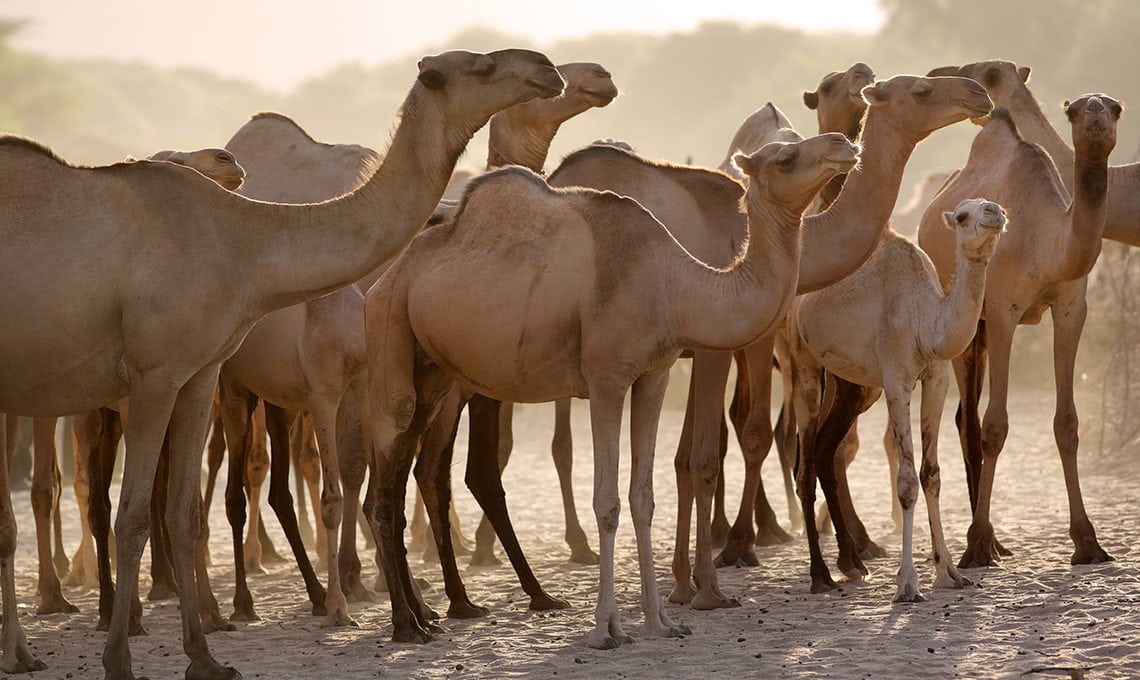
How corona viruses have affected camel herding
Since camels often move between different countries and regions, controlling diseases such as corona viruses calls for a transboundary approach involving enhanced surveillance and precise diagnostics. This is a key conclusion in works by molecular geneticist Sheila Ommeh Cecily, Jomo Kenyatta University of Agriculture and Technology (JKUAT), Kenya.
Dr. Ommeh recently won the Top Female Researcher award instituted by Kenya Education Network (KENET), the national research and education network (NREN) of Kenya. The award was based on her high number of publications, 32 on Elsevier’s Scopus and SciVal publication platforms, and 387 citations.
The most highly cited publication authored by Dr. Ommeh is “The Middle East Respiratory Corona Virus which determined the genetic diversity of the virus among camels in Kenya and East Africa.” The scientific article builds upon the first country-wide study of the Middle East Respiratory Corona Virus in camels.
The project focuses on disease dynamics between camels and livestock herders.
“The neglection of countries which have camels has resulted in a lot of emerging neglected diseases which are under-studied,” according to the KENET website.
Urbanisation displaces rodents and bats
Over the years, the bulk of Dr. Ommeh’s work has been in studies of poultry and poultry-related birds like chicken, gees, quails, guinea fowls, ducks, and pigeons. The research focuses on the genomic diversity of these species and how they can be improved further for production and productivity and for adaptive traits such as heat stress and resilience towards diseases.
In other projects, the focus is understanding viruses and other pathogens, that wildlife species such as mammals and rodents might harbour. These issues often relate to displacement of small mammals like rodents and bats due to urbanisation which cause the animals to turn up in human settlements.
When winning the Top Female Researcher award, Dr. Ommeh credited the Institute of Scientific Information (IS) Web of Science Metrics for indexing her publications. She also gave credit to research collaborations with The National Museums of Kenya, The Kenya Wildlife Services, The Ministry of Agriculture, Livestock, Fisheries, and Irrigation, The University of Nairobi, The Wuhan Institute of Virology (China), and The Kunming Institute of Zoology (China).
Large potential for genetic improvements
In 2010, Sheila Ommeh Cecily won the Fellowship award from African Women in Agriculture, Research and Development when doing her Ph.D. The fellowship granted her the opportunity to go to Italy and pursue a career in advanced molecular genetics. Since, Dr. Ommeh has graduated more than 10 Masters and Ph.D. students.
When asked what the future of animal biotechnology looks like, Dr. Ommeh said:
“The field of animal biotechnology has been controversial since immemorial with methods like cloning and generic engineering in early science not auguring well with the general society especially in terms of religion and creation. The field of Omics (big data in biology, ed.) has a lot of potential, and Kenya can use phenotypic means to try and improve livestock. The combination of animal biotechnology and Omics will help in the incorporation of molecular data for livestock improvement and conservation.”
The text is inspired by the article “Dr. Ommeh, JKUAT, winner of the 20220 KENET top female researcher award” on the KENET website.
For more information please contact our contributor(s):

